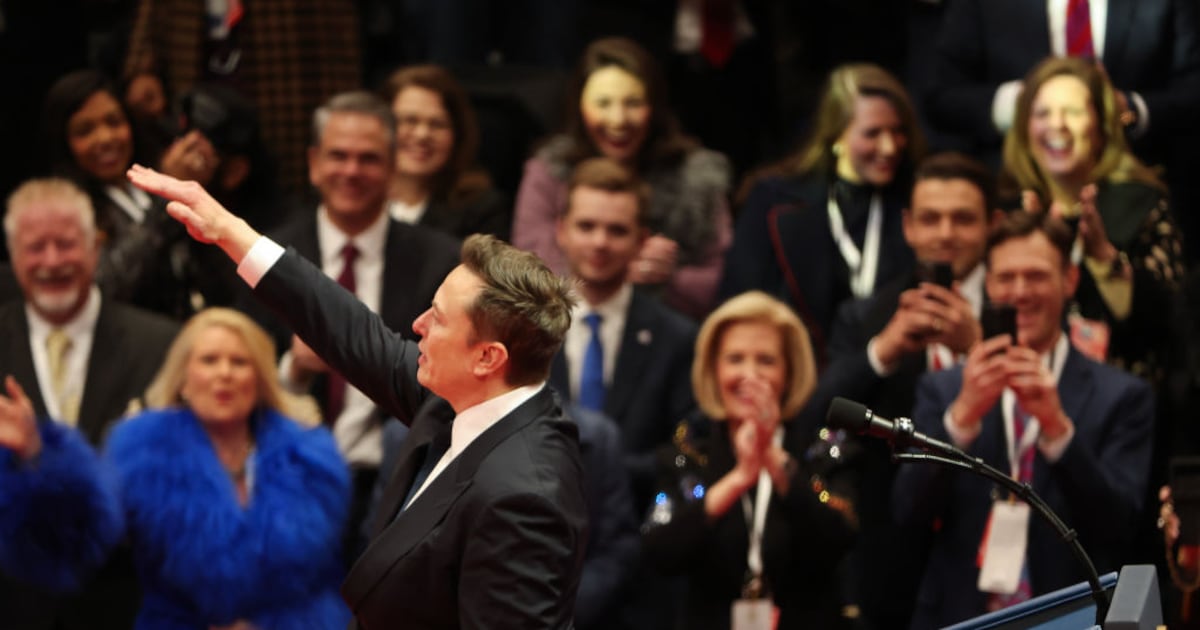The student has now become the teacher.
Sen. Marco Rubio, once viewed as a protege of presidential competitor Jeb Bush, schooled the former Florida governor Wednesday evening in the first national security address of his national campaign.
As compared to Jeb Bush, who fumbled and stumbled through his first major national security address, Marco Rubio delivered a master class on foreign policy that spoke to the soul of the right’s hawkish neoconservatives.
In New York City, before the Council of Foreign Relations and their foreign policy experts, Rubio showed himself to be a peer.
In an hour before the Council, he spoke about everything from Filipino typhoon survivors to keeping South China Sea transit ways accessible—and at one point corrected longtime broadcaster and forum moderator Charlie Rose about the extent to which there are Iranian fighters in Iraq.
And he got into the details: he condemned Iranian efforts to develop a long-range ballistic missile capability, a specific gripe of hawkish Iranian experts that doesn’t get much attention. He said the conditions don’t exist for a two-state solution; that the VA system needs to be reformed; that he’s open to Ukraine joining NATO.
Compare this to Jeb Bush’s first big national security speech in February, before the Chicago Council on Global Affairs, where Bush mispronounced Boko Haram, misidentified Iraq, mistakenly placed the size of ISIS and couldn’t remember the title of ISIS’ Abu Bakr al-Baghdadi.
Meanwhile, Bush has spent the last few days in a quagmire: asked if he would have still invaded Iraq given the benefit of hindsight, he told Fox that he would have. Then came the backpedaling: first, the claim that he misheard the question; then, dismissing the question as merely a hypothetical. Bush got battered by this misstep, drawing criticism from potential rivals New Jersey Gov. Chris Christie and Sen. Rand Paul.
When Charlie Rose asked Rubio the same hypothetical that Bush had been asked, Rubio swatted it away swiftly.
“Not only would I not have been in favor of it, President Bush would not have been in favor of it,” Rubio said.
Ultimately, Rubio’s appeal for a foreign policy based in morality is the strategy most designed to pluck at the heartstrings of American national security hawks.
It isn’t the mathematics of defense cuts that stir souls, nor the need to reauthorize Section 215 of the Patriot Act to continue the country’s metadata collection program.
Instead, it’s the strategic belief in American morality and its link to foreign policy that drives the neoconservative movement.
Rubio hit all those notes: lofty words, with a measured tone—citing JFK and Pope Pius the 12th.
“America plays a part on the world stage for which there is no understudy,” Rubio said. He went around the world, criticising the regimes of the so-called Islamic State, Iran, Russia, China, Syria and North Korea. “Mankind remains afflicted, and… its destiny still largely remains in our hands.”
“Vulnerable nations still depend on us to deter aggression from their larger neighbors,” Rubio continued. “Oppressed peoples still turn their eyes toward our shores, wondering if we can hear their cries, wondering if we notice their afflictions.”
As president, Rubio said he would “advance the rights of the vulnerable—including women and the religious minorities that are so often persecuted—so that the afflicted people of the world know the truth: the American people hear their cries, see their suffering and most of all, desire their freedom.”
As a member of the Senate Foreign Relations and Intelligence Committees, Rubio is regularly briefed—often several times a week—on the hot zones of conflict around the globe. Jeb Bush, as a former governor, is not afforded that level of study. The difference shows.






